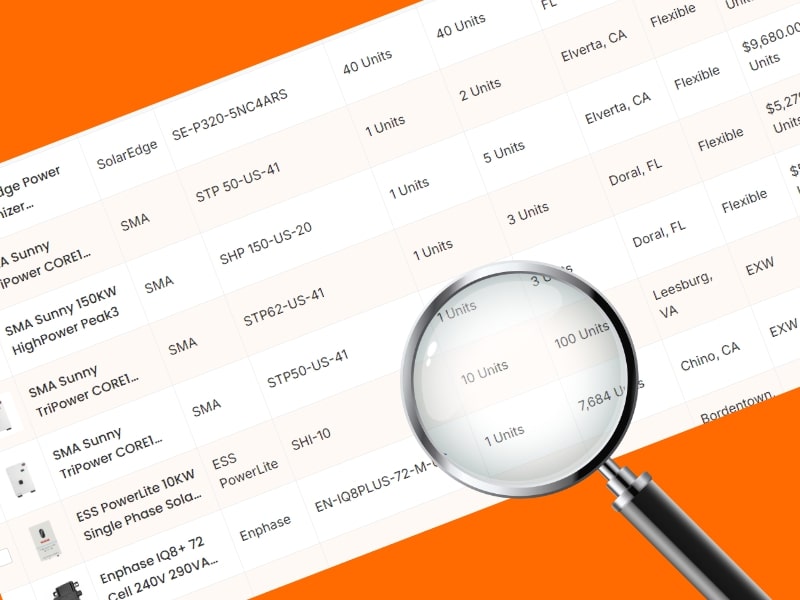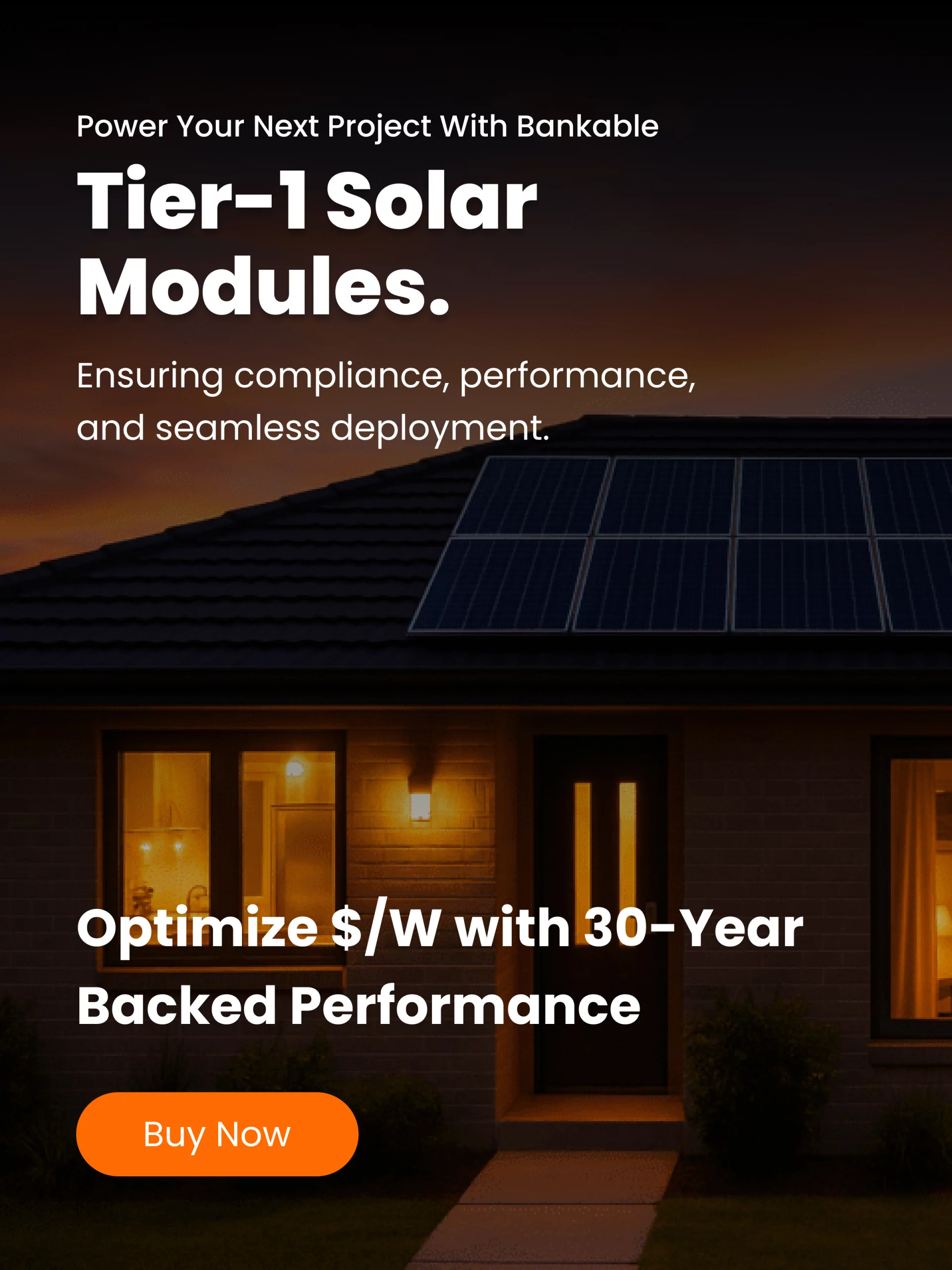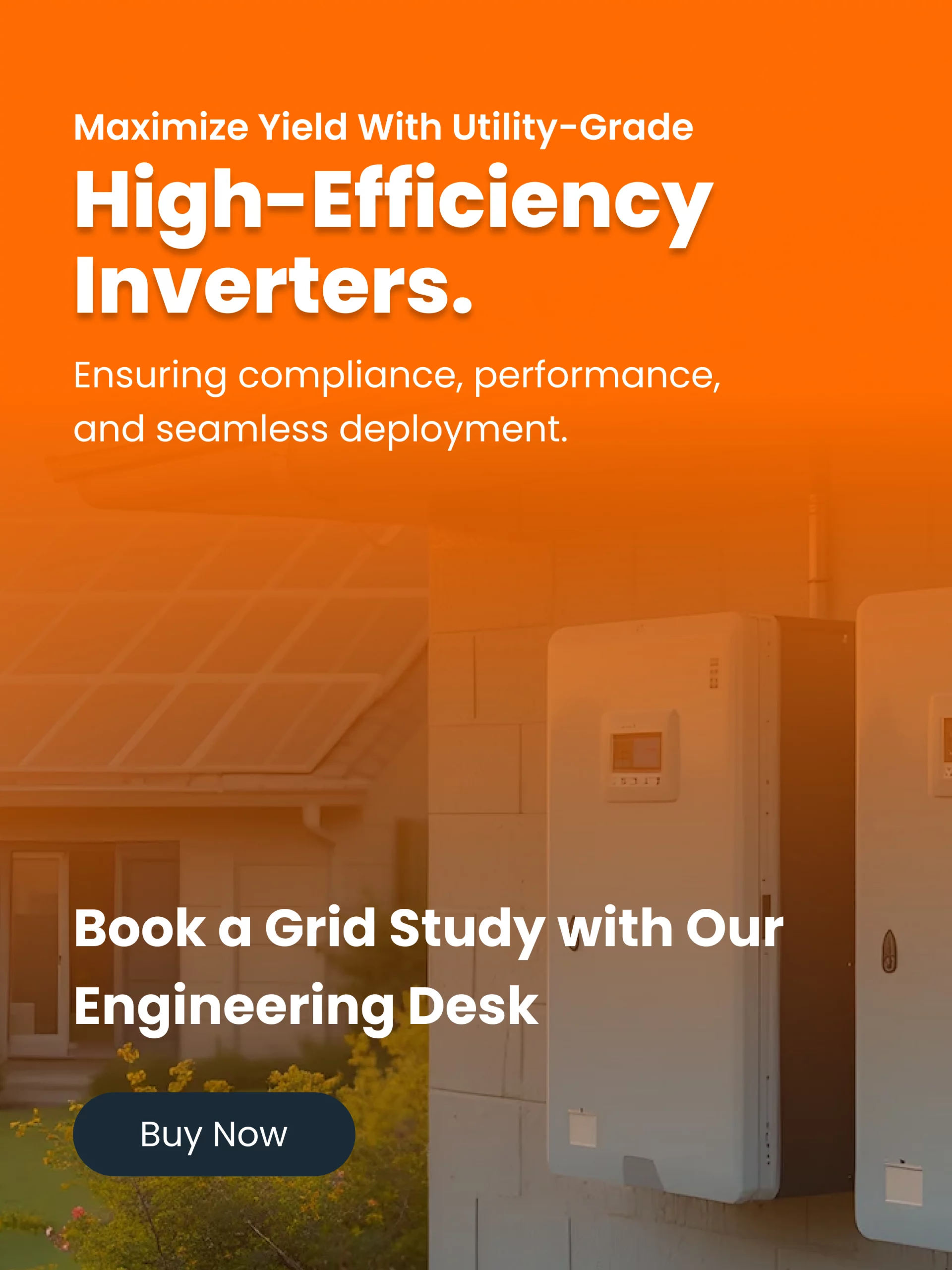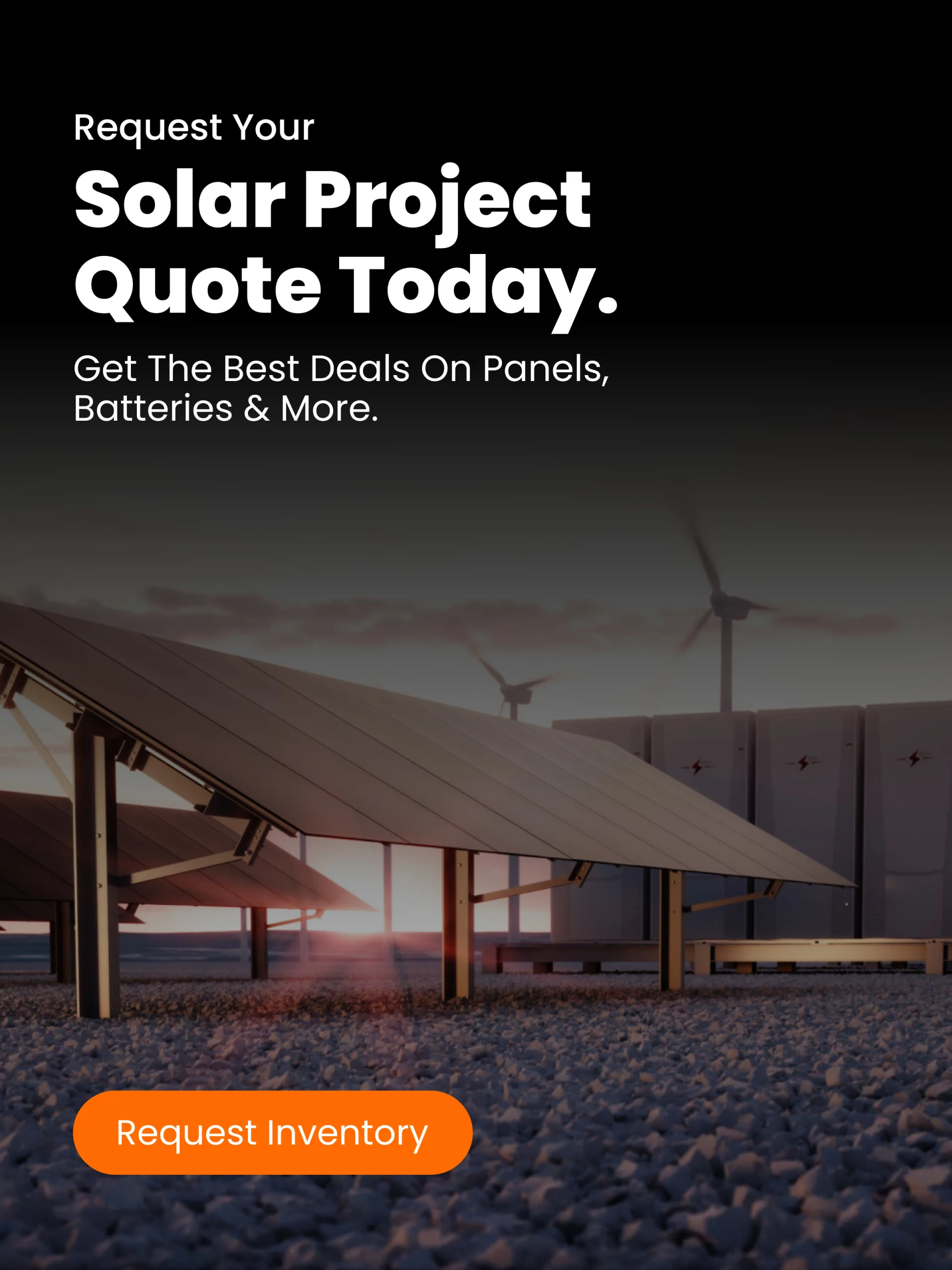With unparalleled access to a vast range of solar equipment, Sunhub’s Solar Trader Platform makes it easy for buyers to explore availability and pricing. For instance, simply choosing “solar inverters” from the main menu results in pages of listings from a wide range of industry suppliers.
Solar installers and EPCs may have a clear idea of what they need, or they might find the selection process more challenging. That’s why Sunhub offers various options for navigating through products. Let’s examine how the platform’s sorting tools can help guide you toward making a selection.
Differentiating solar power conversion technologies
Sorting by “solar inverters” will include options for filtering by specific power conversion technologies.
Solar inverters play a crucial role in making solar energy usable by converting direct current (DC) into alternating current (AC). Solar panels capture sunlight and produce DC electricity, but this form of power cannot be directly used by standard electrical devices or efficiently fed into the grid. Inverters bridge this gap by transforming the DC output into AC electricity that can be used by electrical systems in homes, businesses, and the overall power grid.
Solar string inverters, microinverters, and power optimizers can all perform this DC/AC conversion, but each works slightly differently and has unique advantages that make them best suited for certain types of solar projects.
Solar string inverters
In a system with string inverters, multiple solar panels are connected together in series to form a “string.” The combined DC electricity from all the panels in the string is then sent to a single inverter, which converts it into AC electricity for use in a building or to be fed into the grid.
String inverter systems are simpler with fewer components. They’re cost-effective since one inverter can handle the output from many panels but also less flexible with design limitations. They tend to be best for installations where panels are unlikely to be shaded and can be installed in similar orientations and angles because the performance of the entire string can be reduced by one solar module.
Solar microinverters
Instead of having one inverter for a group of solar panels, microinverters are smaller inverters attached to each individual module. They convert DC electricity to AC right at the panel level so that each panel performs independently.
This individualized approach makes them ideal for installations with shading issues or where panels need to be placed at different orientations or angles. Placing an inverter on each module maximizes the energy production so any shading or dirt on one panel doesn’t affect the others. Microinverters can also provide more detailed performance monitoring. However, these advantages come at a higher upfront cost than string inverters. More components can also mean more maintenance.
Solar power optimizers
Like microinverters, power optimizers are also installed on each solar panel. However, instead of converting DC to AC, they optimize the DC electricity from each panel before sending it to a string inverter for conversion to AC. This allows each panel to operate at its maximum efficiency, but reliance on a centralized inverter means that if it fails, the whole system goes down.
Power optimizers offer a middle ground by mitigating the impact of shading and other panel mismatches and enhancing monitoring like microinverters, but at a better price.
By considering your project needs and budget, you can narrow down which technology will work best for you.
Other filter options
As with its battery and solar panel selections, Sunhub also offers filters for buyers to narrow down searches including the following:
- Incoterms: Incoterms, common terms of sale, help define the responsibilities of buyers and sellers. Sunhub includes a dropdown selection for outlining https://www.trade.gov/know-your-incoterms to specify who will pay logistical expenses such as shipping and tariffs. When searching, buyers can select those most important to them.
- Condition: Whether you’re looking for something new, used, seller-refurbished or simply need parts, Sunhub lets you refine your results to find products in any condition.
- Brand: Shoppers can also filter by brand depending on their preferences for a manufacturer’s market presence, reputation, warranties and other aspects.
Comparing solar inverters on Sunhub
Sunhub also recently added a new comparison feature to provide further assistance to buyers as they make their solar inverter choice. Shoppers are able to quickly determine differences between solar inverters as they view models side by side. To do so, simply choose two inverters and hit the “Compare” button.
Then, select “Highlight Differences” to compare common characteristics. Specification documentation is also available for all panels for an even deeper dive.
Sunhub is constantly striving to streamline the solar procurement process. However, if you need extra assistance with your purchases, our experienced team is always just a phone call away and ready to help.
Explore Sunhub’s solar inverter listings here.




